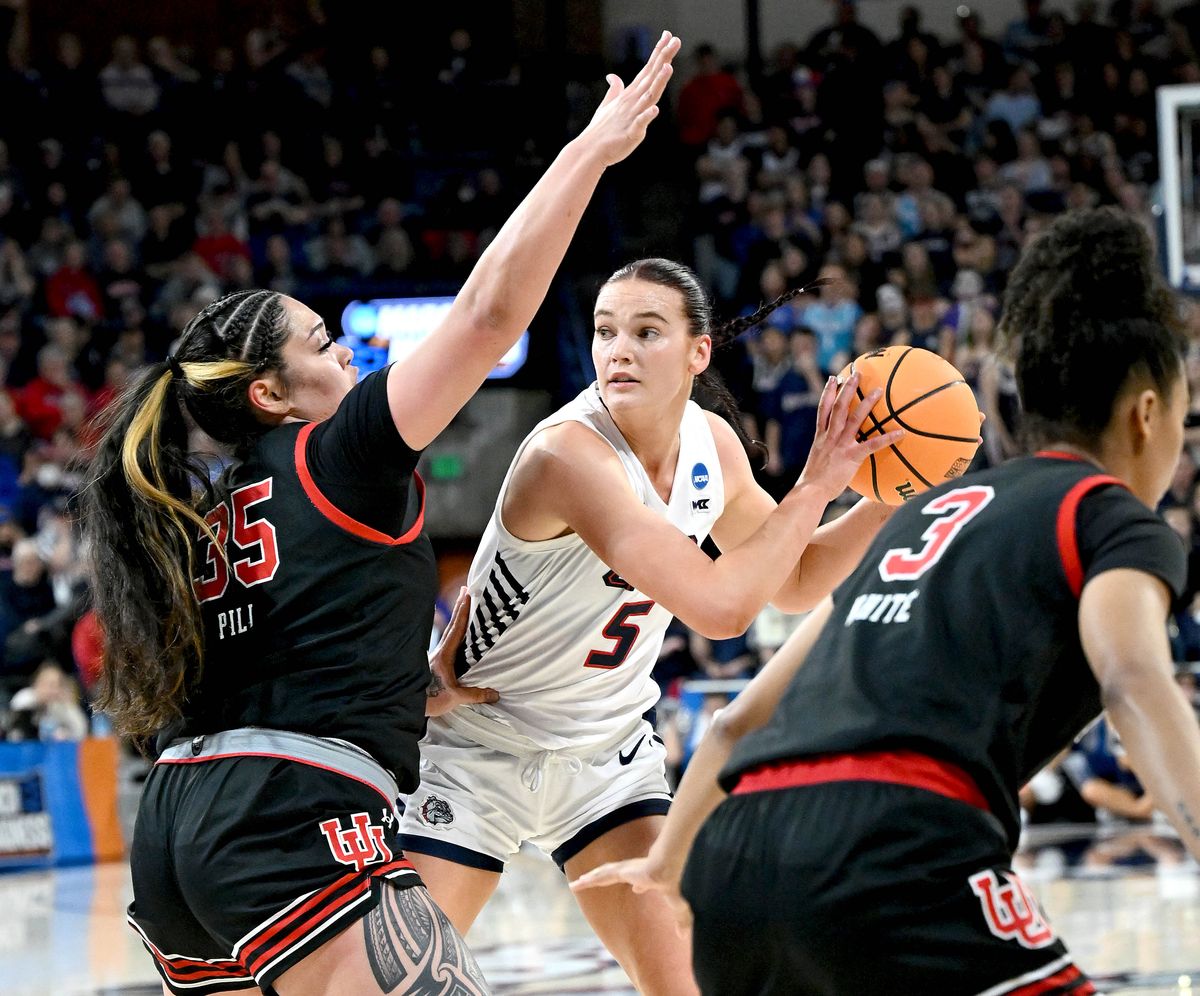NCAA to take tough look at tournament sites after racist incident in Coeur d’Alene

PORTLAND – The racist incidents experienced last weekend in Coeur d’Alene by the University of Utah women’s basketball team could affect how the NCAA structures the women’s tournament in the future, including games already scheduled next year in Spokane.
Next year, under the current tournament format, the Arena is set to host Sweet 16 and Elite Eight games for eight women’s teams.
But because of widespread criticism of the current format, exacerbated by an incident in Coeur d’Alene, a senior NCAA official said this week that the organization may conduct a review this year instead of in 2025.
Around the country on Thursday, coaches criticized the two-site regional format as unfair for teams that must travel greater distances than under the old four-regional system.
“I’d love to have them regional in the Midwest where it was fair for everybody,” Texas coach Vic Schaefer said in Portland, where his team will face Gonzaga in a Sweet 16 game Friday night. “A little easier for everybody to get there than here.”
Also under the microscope is the current system of awarding first- and second-round games to the 16 highest-ranked teams.
This year, the Gonzaga women earned one of those coveted spots, where they were joined by teams from Utah, South Dakota State and UC Irvine.
A shortage of hotel rooms in Spokane, however, forced all three visiting teams to stay in North Idaho.
On the first night of their stay, Utah players were subjected to racist taunts near their hotel in Coeur d’Alene. A pickup truck with a Confederate flag drove near them, and the driver began using offensive language, including the N-word, according to a police report.
The team was left shaken and ended up moving to a hotel in Spokane the next day.
Utah won its first game of the tournament but lost to host Gonzaga on Monday at the McCarthey Athletic Center. The Zags advanced to the regional in Portland, where on Thursday GU coach Lisa Fortier commented on the incident.
“It’s a terrible situation that happened for those players and the staff,” Fortier said Thursday.
“I wish it was something that will never happen again,” Fortier said. “Hopefully, it doesn’t ever.”
The hotel room shortage, however, wasn’t confined to Spokane. The Eastern Washington University women, who qualified for the NCAAs for the first time since 1987, were assigned to play at Oregon State.
A lack of suitable hotel rooms in Corvallis, Oregon, forced the Eagles to stay close to an hour’s drive away in Salem.
Fortier, whose team hosted for the first time since 2014, was hopeful that the current format will remain workable.
“We’ll learn from it,” Fortier said. “Next time we host, hopefully, they’re going to be right downtown in the Davenport and have a great experience.”
The growing popularity of the women’s game might be the pivotal factor that pushes the NCAA to revamp its current format and schedule first- and second-round games years in advance, as it has done for years in the men’s tournament.
This year, a record 292,456 fans attended the first two rounds, shattering the previous mark set last season by more than 60,000.
On Wednesday, Lynn Holzman, NCAA vice president for women’s basketball, said the selection committee plans to review its tournament format.
“That review would include the first four, first and second rounds, and also an evaluation of the two-site regional format,” Holzman said. “We want to look at the preliminary rounds of the championship, and with the growth we’ve had the last few years, I think we should move up that review to start in 2024.”